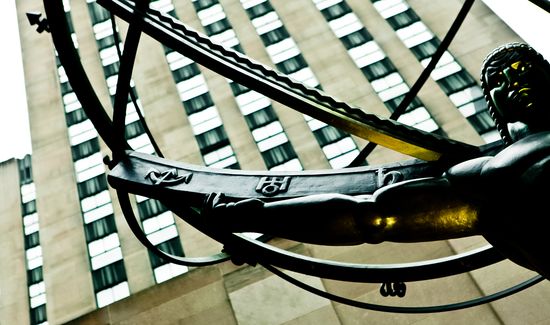Who's Getting This Conservative Funder's Top Prizes?
/
The Milwaukee-based Lynde and Harry Bradley Foundation makes no secret of its conservative principles, backing right-leaning policy research and implementation alongside funders like Olin, Scaife, and the Kochs. Over the years, the Bradley Foundation has supported a wide variety of conservative scholars and think tanks, building a case for limited government, capitalist enterprise, and American exceptionalism.
The foundation’s Bradley Prizes recognize “prominent individuals involved in academia, public-policy research, journalism, civic affairs, and the arts,” usually with extensive conservative bona fides. This year’s winners will include noted British historian Andrew Roberts, British rabbi and House of Lords member Jonathan Sacks, and political scientist Charles Murray, author of such controversial works asLosing Ground (1984) and The Bell Curve (1994). The Bradley Prize comes with a $250,000 stipend, and will be formally presented to each winner at a June 15 ceremony at the John F. Kennedy Center for the Performing Arts in Washington, D.C.
Inside Philanthropy has covered Bradley’s ongoing efforts to bankroll a conservative intellectual movement. In that role, the foundation’s considerable resources have flowed to key right-wing players like the Heritage Foundation, the Heartland Institute, the Federalist Society, Americans for Tax Reform, the Hoover Institution, and the American Enterprise Institute, to name a few.
In our mind, Bradley is among the most important funders on the right—if not the most important—of the past few decades. Its fingerprints can be found on nearly every big conservative idea since the 1980s, with its money backing a who's who of top thinkers on the right for decades.
Related: Forget About the Kochs. Meet the Real Masterminds of Conservative Philanthropy
Among other things, Bradley’s values-driven grantmaking has financed education and academia at all levels. For children and youth, Bradley has been a leading critic of the Common Core standards and a booster for charter schools and vouchers, granting many millions to the Charter Schools Growth Fund over the past decade. Higher up the academic food chain, the foundation runs a fellowship program that has sponsored thousands of university students since 1986. But the Bradley Prizes are something special: the foundation’s top way of recognizing conservative thought leaders.
Related:
- Bradley Foundation: Grants for Higher Education
- Look in the Mirror, Charter School Growth Fund: You're Bradley's Highest-Funded Grantee
- How the Hoover Institution Vacuums Up Big Conservative Bucks
Along with funders like the Scaife and F.M. Kirby foundations, as well as the Searle Freedom Trust, Bradley has been engaged in a long campaign to weave conservative thought into the policy mainstream. Rather than backing specific programmatic goals, much of Bradley’s grantmaking promotes ideological stances around concepts like personal responsibility and free enterprise. Its choice of Murray and Roberts underscores that trend.
Bradley's relationship with Murray goes back decades. Murray first became a national figure in the mid-1980s, after he became a Bradley Fellow at the Manhattan Institute, where he published Losing Ground, his influential attack on U.S. social policy.
Bradley also supported Murray as he co-authored the controversial book The Bell Curve, which posits the existence of a “cognitive elite,” blessed with higher intelligence and destined for better outcomes than its peers. Murray’s work has been criticized for considering genetics, race, and gender in light of that theory. Murray is a fellow at the American Enterprise Institute, which has a long history of financial backing from the Bradley Foundation.
Bradley’s support for Andrew Roberts is also interesting. Roberts’ academic work has centered on European military history, and he has been a vocal supporter of the United Kingdom’s interventionist role and of America’s war in Iraq, as well as its continuing struggle against radical elements in the Middle East. It should be noted that the Bradley Foundation has also been a longtime backer of such hardline ideas on national security.
The third winner, Lord Jonathan Sacks, is a leading philosopher of Judaism who served as chief rabbi of the United Hebrew Congregations of the Commonwealth for 22 years until 2013. He is also this year's recipient of the Templeton Prize, worth an impressive $1.5 million. A longtime advocate for the compatibility of religion and science, Sacks' latest book deals with the thorny topic of religious violence.
- Conservative Intellectuals Love This Foundation. Here's Why
- Conservative Policy Wonks: Your Favorite Sugar Daddy is Gone, But He Left Big Treats
- How the Hoover Institution Vacuums Up Big Conservative Bucks
- Which Washington Think Tank Do Billionaires Love the Most? And Why?
- Conservative Policy Wonks: Who Among You Doesn't Love the F.M. Kirby Foundation?








